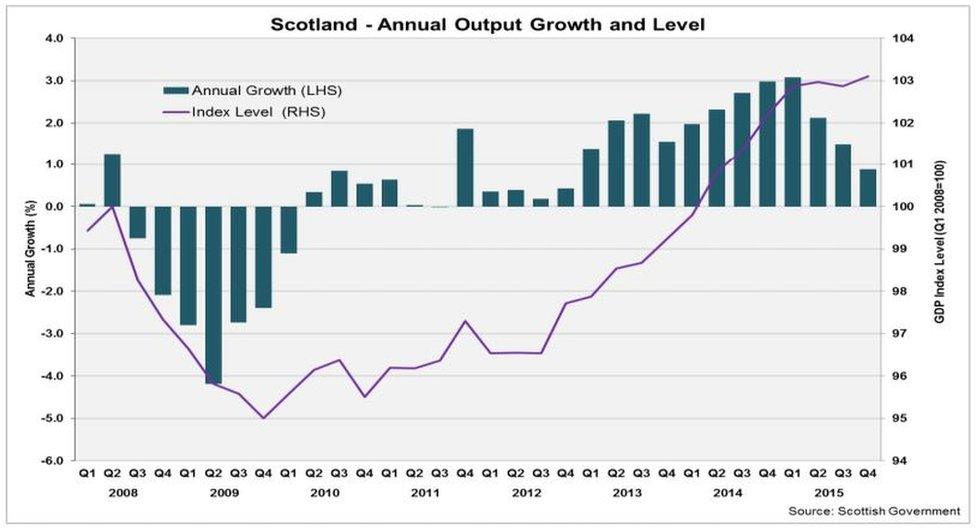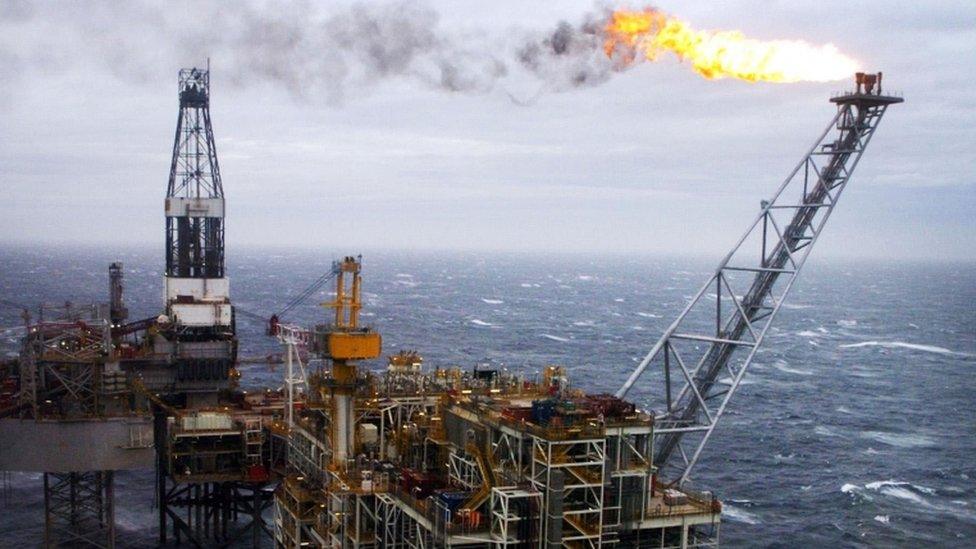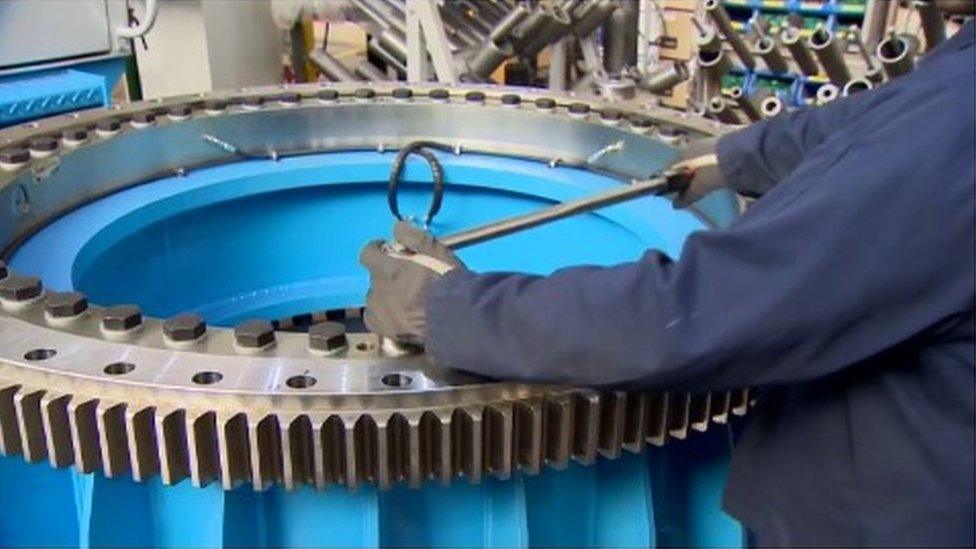Growth in Scots economy slows but remains 'resilient'
- Published

Scotland's economy grew by 1.9% in 2015 and is set to continue to grow slowly, according to the chief economist.
Dr Gary Gillespie said the economy was "resilient", but warned that the pace of growth in 2015 was "significantly below" that of 2014.
Forecasts say a similar level of GDP growth should continue in 2016 and 2017 amid "challenging" conditions.
Economy secretary Keith Brown said "fundamentals" like employment and productivity were "strong".
Mr Gillespie set out the figures in his tri-annual State of the Economy report, external.
He said the economy "has been resilient over the past 12 months in the face of the most challenging external economic conditions in recent years".

Dr Gillespie's report shows growth continues in the Scottish economy - but at a slackening pace
Annualised growth of 1.9% was below the UK-wide rate of 2.2%, and "significantly below" that recorded in 2014, external, which was 2.7%.
The drop in the price of oil and other commodities saw some sectors suffer and created difficult trading conditions for exporters.
However, the general service sector - which accounts for nearly 80% of output in Scotland - benefited from lower energy costs and improving consumer spending.
Mr Gillespie said the construction sector also made "a significant contribution" to growth, in part thanks to "high levels of public infrastructure investment being maintained".
'Global headwinds'
He also described the labour market as "resilient", with record levels of employment despite a slight fallback in the most recent figures, and unemployment "stabilising" at about 6%.
The chief economist said: "The attractiveness of the Scottish economy remains strong for business growth and inward investment, which will present continuing opportunities both in the short and medium term and areas impacted by external factors rebalance and create new opportunities."
Economy secretary Keith Brown said the figures were encouraging "in the face of extremely challenging global headwinds".
He said: "The challenges facing the economy look set to persist through 2016, but the fundamentals of the Scottish economy are strong, with high levels of employment and rising productivity.
"We have to be conscious of the challenges we face, and conscientious in facing up to them - but we also have to be aware of our strengths and successes if we are to be able to build on them."


The drop in the oil price has had a big impact on Scotland's economy
Analysis by business/economy editor Douglas Fraser
The Scottish economy is making slow progress, according to the Scottish government's chief economist.
Dr Gillespie's latest State of the Economy report reflects the continued impact of the lower oil price.
Almost all the signs so far this year have shown the Scottish economy to be, at best, subdued - in growth, jobs and wages.
Dr Gillespie's analysis of available data reflects similar challenges to the world and UK economies, but with the problems of the oil and gas industry adding pressure on Scotland. His survey of independent forecasts fails to find much sign of growth picking up.
The most positive figures were about consumer sentiment, with people's expectations about their household finances picking up slightly.
But the economist's report cites evidence from businesses that the outlook for the dominant service sector is "finely balanced".
And pressure on manufacturing is expected to continue, having contracted 2% last year.

The report was published on the same day as a new survey from Scottish Engineering, which found the industry is "stagnating" with more firms seeing order levels drop than those seeing a rise.
Bryan Buchan, chief executive of the trade organisation, said: "We appear to be marking time in terms of capital investment - partly due to market conditions arising from reduced activity in the UK Continental Shelf (offshore sector) and also in yet another tranche of uncertainty in terms of the imminent EU referendum.
"Our sector is little different to the UK economy as a whole where growth slowed in the first quarter of this year, and is expected to do so further in the second quarter.
"There is some cheer to see oil prices breach the $50 mark for the first time this year, despite failure to agree production caps by Iran and Russia. This gives some hope of a limited recovery within the calendar year."
Meanwhile, an offshore firm based in Aberdeen, Sea Energy, was placed in administration. It was formerly known as Ramco, and was an explorer for oil.
It had sought to transform itself into an offshore renewable energy specialist, but that failed, and its subsequent moves into investment in Irish oil exploration and software for offshore maintenance failed to keep it afloat.
Prior to the administration, it sold its software operations to James Fisher Plc, with the transfer of 33 jobs. No more than seven people are expected to lose their jobs.
- Published3 June 2016

- Published31 May 2016

- Published11 April 2016

- Published13 January 2016
